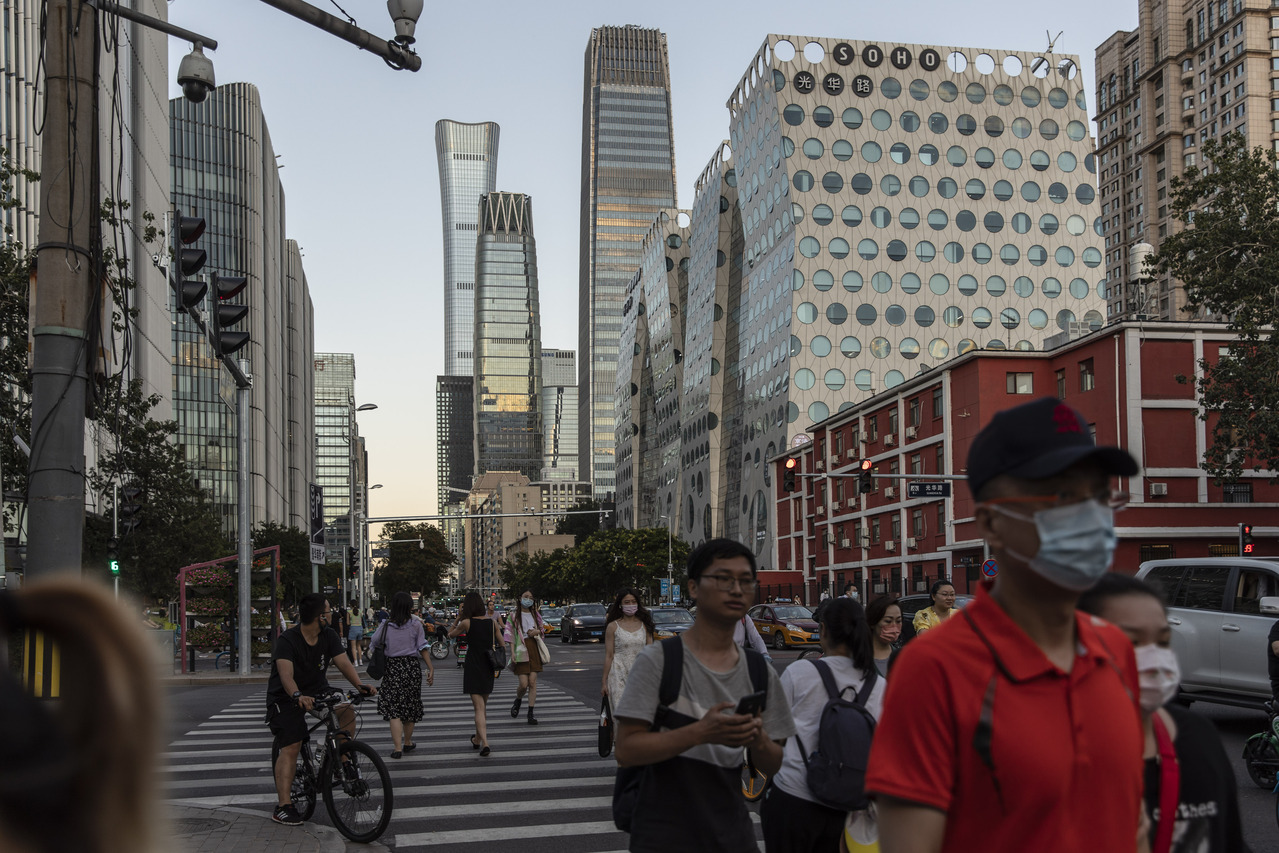President Xi says China to set up stock exchange in Beijing
Sign up now: Get insights on Asia's fast-moving developments

Xi Jinping said the Beijing Stock Exchange will be the primary platform serving innovation-oriented SMEs.
PHOTO: BLOOMBERG
BEIJING (BLOOMBERG, REUTERS) - China's President Xi Jinping on Thursday (Sept 2) said the country would set up a stock exchange in its capital, Beijing, to serve small and medium-sized companies.
China's two major stock exchanges are in the financial hub of Shanghai and in the southern city of Shenzhen, on its border with Hong Kong.
"We will continue to support the innovation-driven development of small and medium-sized enterprises by deepening the reform of the New Third Board and setting up the Beijing Stock Exchange as the primary platform serving innovation-oriented SMEs," Mr Xi said in a video address at the opening of the China International Fair for Trade in Services (CIFTIS).
Mr Xi did not give a date for the establishment of the new board or any further details, but said it would "provide a platform for innovative small and medium-sized enterprises".
The National Equities Exchange And Quotations, an existing Beijing-based exchange which launched in 2013, would be "reformed", he said.
Beijing has said it wants to raise the share of equity financing in its bank-dominated financial system as part of a campaign to reduce debt-levels in its economy.
The country launched a new exchange in Shanghai known as the "STAR Market" in 2019 to provide more financing for tech companies.
"Deepening the reform of the New Third Board and establishing the Beijing Stock Exchange is an important measure to implement our national innovation-driven development strategy and continue cultivating new drivers of development," the China Securities Regulatory Commission said in a statement after the speech.
"It is also an important measure to deepen structural reform of the financial supply side."
The New Third Board is another name for the NEEQ.
Mr Xi did not comment on any of the government's recent regulatory moves, which are part of a broad campaign recently to rein in Internet platform and education companies which have rocked financial markets in recent months.
Mr Xi did not comment on any of the government's recent regulatory moves, which are part of a broad campaign recently to rein in Internet platform and education companies which have rocked financial markets in recent months.
During the speech to a government-run summit on trade in services, Mr Xi emphasised China's gradual opening to foreign investment in service sectors such as finance and healthcare, where Beijing sees the introduction of foreign competition as a key part of modernising its economy.
Mr Xi said that China would continue opening services by "exploring" setting up a designated innovation zone for trade in services and via a nationwide "negative list".
Such lists have previously been issued by China to name proscribed sectors for investment, with investments in other areas being allowed.
"China is willing to work with all parties to continue open cooperation," Mr Xi said, adding that China would "share the development opportunities of trade in services, so as to promote the recovery and growth of the world economy".
The collapse in international tourism, which has plunged globally due to the pandemic, has hit the global trade in services.
China's imports and exports of services dropped 15.7 per cent year on year to 4.6 trillion yuan (S$957 billion) in 2020 mainly due to the sharp decline in tourism, according to official figures.
Because Chinese tourists spent much more abroad than overseas tourists spend within China, the country has run a persistent deficit in the services trade, exceeding 1.5 trillion yuan in 2019.
That deficit has narrowed in recent years due to rapid growth in service exports, in part due to the overseas success of technology companies such as TikTok owner ByteDance.
China tightly restricts access to foreign companies in some sectors such as digital services, effectively banning overseas social networking platforms such as Facebook from serving consumers in the country.
The country has more restrictive policies on services trade than the average seen in the Organisation for Economic Cooperation and Development (OECD), according to an index compiled by the club of mostly wealthy economies.
However, China has strategically opened some sectors in recent years and its services trade restrictiveness has seen one of the largest declines of any country since 2014, according to the OECD.


